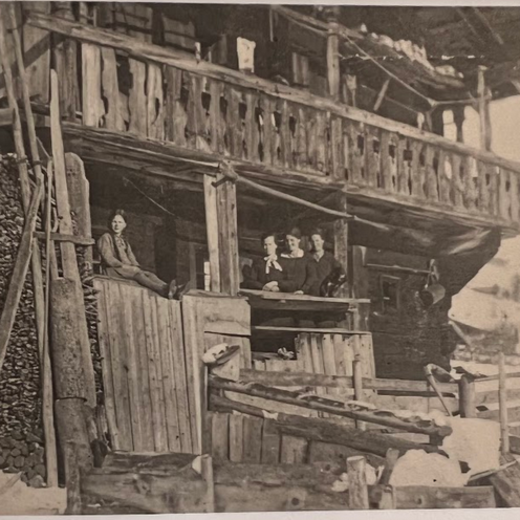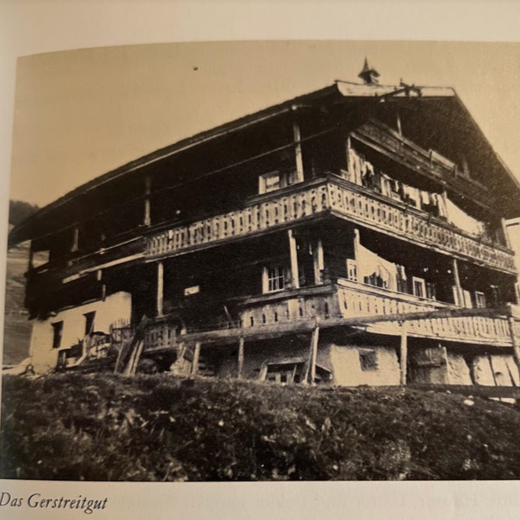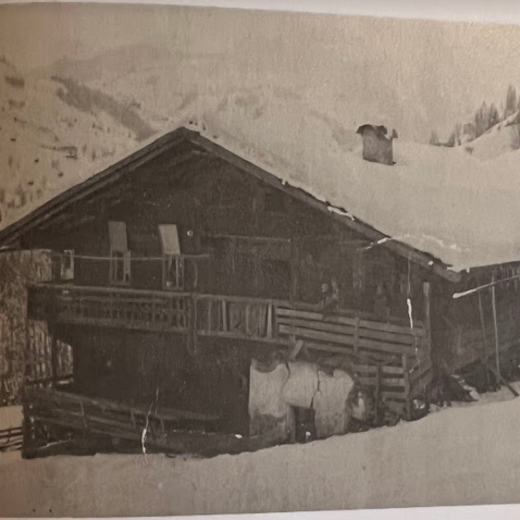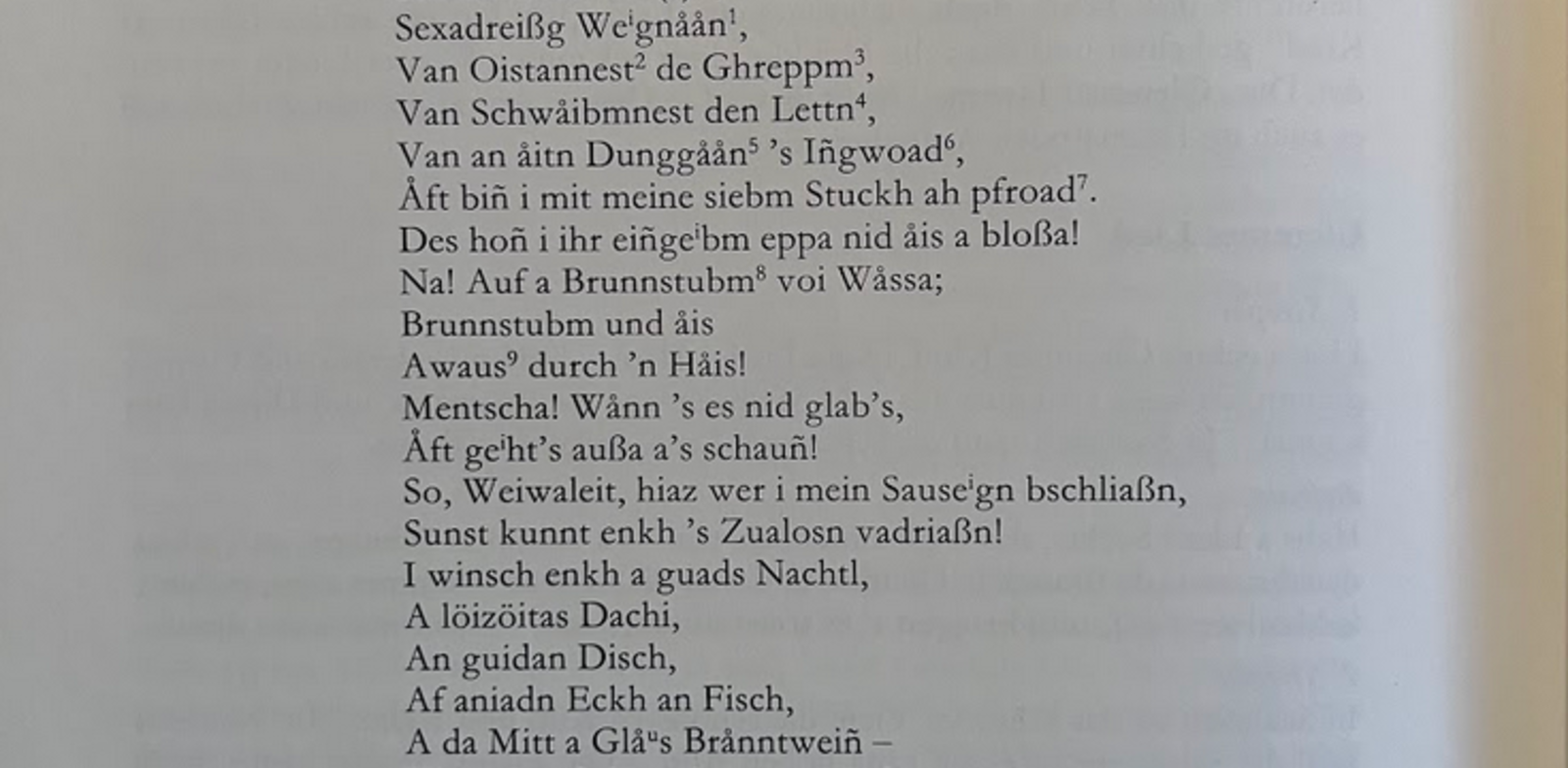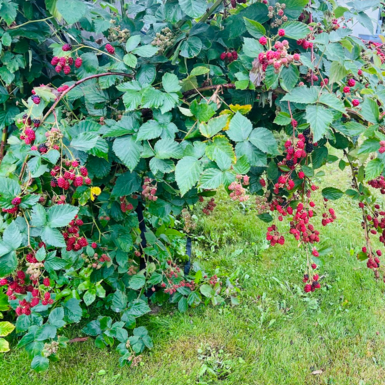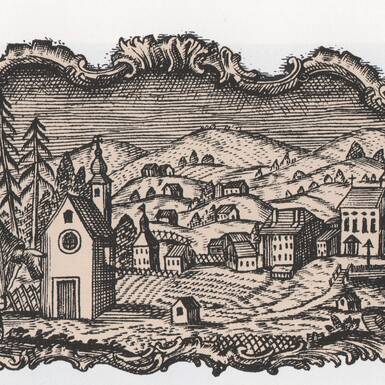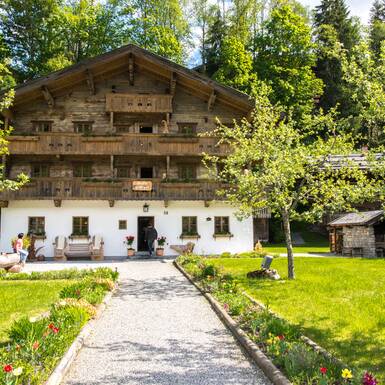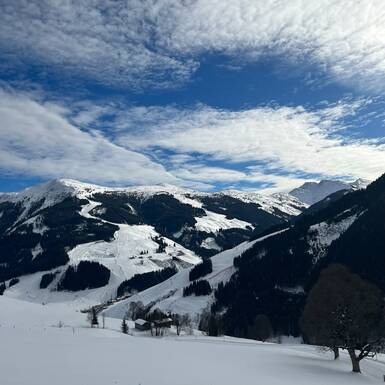- Traditions
The Pinzgau Dialect
There’s a wide-spread assumption that the language people speak is tied to the nature of their surrounding landscape. In the Alps, the spoken dialects often sound gruff and harsh, the languages spoken in countries with a flatter, softer topography and more mellow climates on the other hand often sound softer and more rounded. If you listen closely, even the dialect spoken in Austria’s Pinzgau region isn’t uniform but instead has very subtle differences from valley to valley. Those familiar with the German language and its dialects can detect a subtle Tirolian influence amongst the dialect spoken by the people from Oberpinzgau (Upper Pinzgau) whereas the Mittelpinzgauer (Middle Pinzgau) dialect is influenced by neighboring Bavaria. The traditional differences in vocabulary and pronunciation are very subtle but in recent years tourism has also had an influence on the various dialects. Today’s story is about the origin of family and estate names in the Glemmtal Valley. Enjoy!
Estate and Family Names and their Meaning
Many of the names of the various estates and old farms in the region hint at the surrounding landscape or their purpose. Family names on the other hand often describe a trade or craft, social standing or unusual features and characteristics of those who were given the name. The early people in the valley were very creative in their name-giving – butchers were given names like Kalbsohr (calf-ear), Sauhaut (pigskin) oder Schweinshaupt (pigs-head) and owners of small stores were given names like Theuerfeil (expensive haggler) and Pfennbert (penny-lover). Names of animals like Beer (bear – the beverage is spelled “Bier” both the animal and the beverage are pronounced the same in English and German), Dachs (badger), Wolf (self-explanatory), Schnegg (slug) and many more.
Up in the mountains in the at the time very secluded valleys, people were mainly called by nicknames or the name of their estate or farm up until the 17th century. Official last names were only fixed in place in 1614. Here are some examples of some of these old names from across the valley that can still be found today:
Names of Estates & Farms and their Origins:
Krumpfeichten – hints at an especially crooked spruce
Kolling (originally (Choling) – charcoal burner
Taxing (originally Tachsach – hints at the proximity to a forest (nothing to do with taxes)
Eibing – hints a yew tree
Reit – describes a piece of land that was made arable by land clearing
Gersteit – derived from the German word for barely (Gerste)
Kohlgrube – literally coal-pit
Ellmau – derived from the German word for elm tree (Ulme)
Palfen – derived from a craggy rock
Schied – hints at a rivers power to move large rocks down the river
Schwarzach – from the dark area in the water that is shaded by trees
Reichkendl – from “Kendel”, Austrian dialect for a gully or small stream
Langfeld – literally “Long-Field”
Kohlmais – someone producing coal
Saliterer – someone mining for Salpeter
Last names & their meaning:
Breitfuß – (literally “Wide-Foot”) a shoemaker or someone with a particularly wide foot
Eberharter – someone from the Eberhart Estate
Ehn (Enn) – Ancestry in Saalbach (from ancestor or grandfather)
Gensbichler – a hill that’s part of the goose pasture
Hasenauer – a field that’s home to lots of rabbits
Hutter – a shepherd
Lengauer – long field
Lederer – a tanner / someone who works with leather
Loitfellner – from a sunny field
Perfeller – bear-trapper
Eder – someone who lives close to barren land
Pfeffer – someone who owned a pepper mill
Schwabl – someone from the South-German region of Schwaben (Swabia)
Stehrer (Stöhrer) – a handyman who works for multiple farmers (instead of for just one as was common at the time)
Historically, the people of the Glemmtal Valley were almost exclusively catholic, so it’s no surprise that many children were given the names of saints like Josef, Anton, Johann, Peter and Paul.
As the valley and its people moved through time, many names literally changed with the times. Eder (someone who lives close to barren land) and Krämer (huckster), for example, were combined to form the Ederkrämerhaus (the house of the huckster who lives by the barren land).
Songs & poems from the Glemmtal
The people in the Glemmtal valley have always been a sociable village - and so many funny, contemplative, profound and mocking texts have been written over the years. Today, these pieces are valuable contemporary witnesses that give insight into the language and character of our ancestors.
Many of the old words and dialects are changing with the times, but there’s a project that aims to conserve the old vocabulary and dialect of the Pinzgau region for future generations. It also provides a guide on the proper pronunciation of many of the old words. This project can be found right here www.pinzgauer-mundart.at.
Pfiad enk Good! (Goodbye, or literally translated, Go with God)

